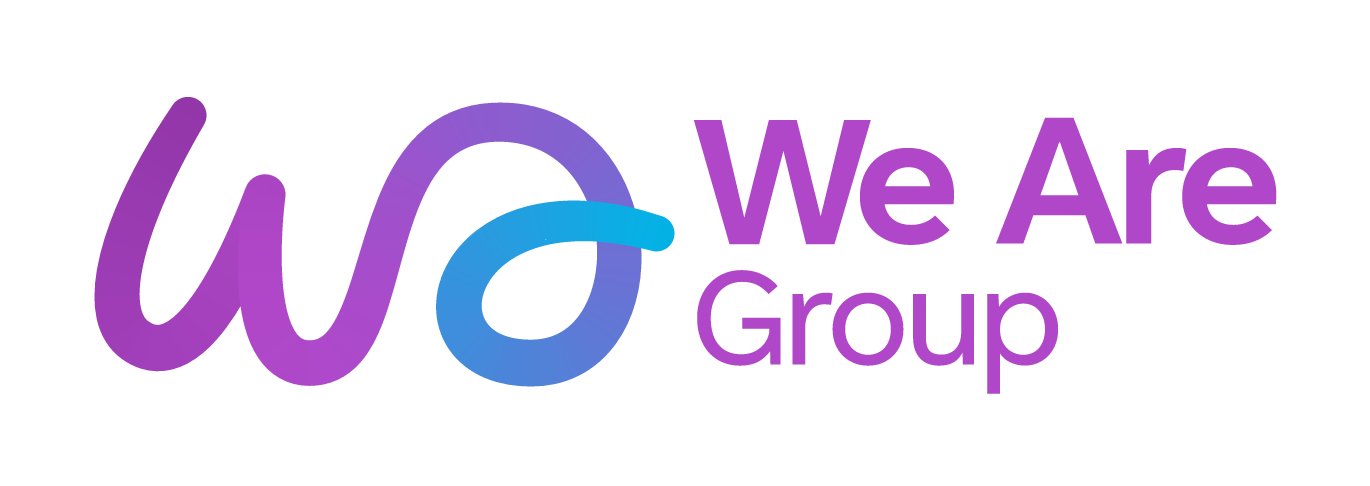By Jonathan Prew, Managing Director at We Are Group
During my career, I’ve worked in both public and private sectors. First working in local government, before moving on to be Managing Director at some of the largest outsourcers in the UK, including Capita and Serco. One of my biggest takeaways from involvement in both sectors was that there needs to be a relationship between social impact and operational efficiency within organisations. It seemed to me that the private sector focussed on optimising operational efficiency, meanwhile the public sector focussed on achieving social impact. I say, why can’t both be achieved in all organisations?
It's apparent that Corporate Social Responsibility (CSR) can enhance efficiency for firms, supporting the fact that social impact and operational efficiency aren’t mutually exclusive objectives. Both go hand-in hand.
With the world becoming increasingly digital, CSR needs to positively impact those who are digitally deprived, and this effort needn’t negatively impact operational efficiency.
I strongly believe that in order to embed digital confidence across all aspects of the UK, we need big businesses to embrace changes in the way they work, and adopt an alternative approach whereby digital social impact and operational efficiency can be achieved concurrently.
Working with Government, Local Government, Housing Associations, and Corporates, We Are Group are proving that Corporate Social Responsibility (CSR) – or as we prefer to use, Social Return On Investment (SROI) – and operational efficiency can go hand-in-hand.
Let me give you a real world example.
In the UK there are 14M (27% of the population) digitally challenged individuals. 10.4M (20%) people lack foundational digital skills, and 2.4M (4%) are not able to do any basic tasks in order to utilise devices and the internet to their advantage (Lloyds Bank Consumer Digital Index 2022). In addition to this, nearly nine out of ten (85%) young people leave school wishing they had the chance to learn digital skills needed for jobs, such as basic computer office skills (Decision Marketing). Looking at these statistics, the original assumption that 100% of people would naturally get online is simply not true and not possible.
With businesses increasingly removing face-to-face channels, customers who cannot or do not want to go online have to rely on Contact Centres, rather than resort to online interactions.
In the UK we estimate there are 6000 Contact Centres, tasked with responding to customer enquiries. These Contact Centres employ in total an average of 812,000 colleagues (circa 4% of UK working population) with an average centre capacity of 127 (Cactus Search). Based on this, let’s assume circa 30 million calls per day.
Many of these calls come as a result of customers being unable to use apps and the internet to find the information they require or request the service they need. Inevitably they resort to Contact Centres to gain answers to basic and repetitive questions, including:
- Have I received…?
- Can I book…?
- Can I pay for…?
- Can I report a…?
Most businesses would see this volume of calls as the norm, stretching their operations to respond to regular repetitive enquires.
But this needn’t be the case.
Imagine if 10% of those callers with repetitive enquiries switched to online interactions, but just lacked the confidence to do so.
We Are Group enable this to happen.
We Are Group are working with outsourcers and Contact Centres to show that there is an alternative approach that is both socially and financially beneficial.
Our work with corporates has proven that agents recognises those customers who would benefit from digital support, so Contact Centre staff act as the first point of contact and refer customers to the We Are Group Contact Centre for initial assessment.
These initial assessments then result in customers receiving services such as:
- Free digital training at home, in a centre, or online
- Free digital device
- Free data
We Are Group work with end-users at their point of need, as, by collaborating with Warwick University’s behavioural science academics, we have learnt that that’s when real change is most likely to occur.
The services we provide are then delivered via our partners – a funded network of individuals from large organisations, such as the Citizens Advice Bureau, through to small, voluntary groups. It takes only one or two support sessions with a trainer for customers to learn basic digital skills and become digitally confident.
So, imagine now that 10% of repetitive customers have been given the digital confidence via We Are Group's digital support service. Now they are able to go online and not return to the Contact Centre.
Based on the average Call Centre capacity of 127 agents and an assumption that the number of calls to agents is an equal ratio, it is possible to reduce the number of agents required in parallel to the reduction in calls. A saving of 10-13 agents every year is a compelling argument for investing in digital support and training.
These figures directly demonstrate that SROI and operational efficiency go hand-in-hand.
As I often say “how many organisations enable a voluntary group to be paid to deliver a national programme on behalf of the UK Government, resulting in social and financial benefits?” Well, We Are Group do and that’s why I am so very proud of what we have accomplished but even more excited about what we can achieve next.
Working with nationally recognised operational excellence experts, we are confident that we can help any organisation repurpose the way they work, and in turn enrich the lives of their customers and support customer retention.
Imagine a business case that:
- Supports operational efficiency
- Has a positive impact on customer retention
- Shows a positive social impact return
- Creates capacity to support those in need of face-to-face or voice support
I don’t know a CEO who wouldn’t be interested in a business case like this!
That’s why I’m so excited for the future, one that adopts a single way of collaborative working that harnesses the power of the community for social and financial benefit.
Enjoyed this blog? Sign up to our free newsletter for more interesting reads: We Are Group Newsletter
Jonathan Prew
Jonathan Prew is the Managing Director at We Are Digital. Having spent a good portion of his career in corporate roles, he chose to move into the field of Social Impact, which combined his business background with a desire to make a positive social difference. He has extensive experience in the public and private sectors, with particular expertise in outsourcing, change management, and technology. He has successfully generated over £1bn in new business and managed a staff base of 5000+ with a P&L responsibility of over £400m. JP has a full life cycle of experience from contract launch to delivery of operational improvements, renegotiation, and transition. He has worked in various industries, including the Private sector, Local Authority, Education, Housing Associations, Central Government, Social Care, Voluntary Sector, and Emergency Services. His achievements have been recognised with two global awards for inspirational leadership.



